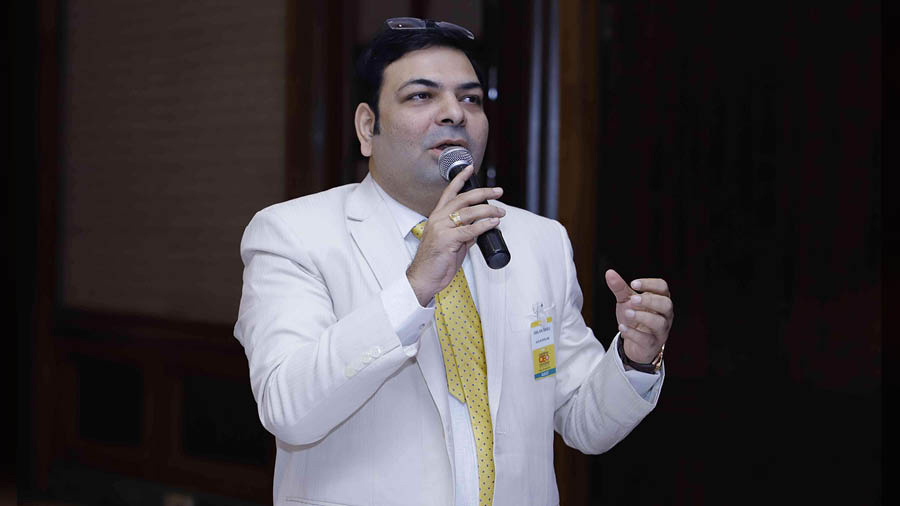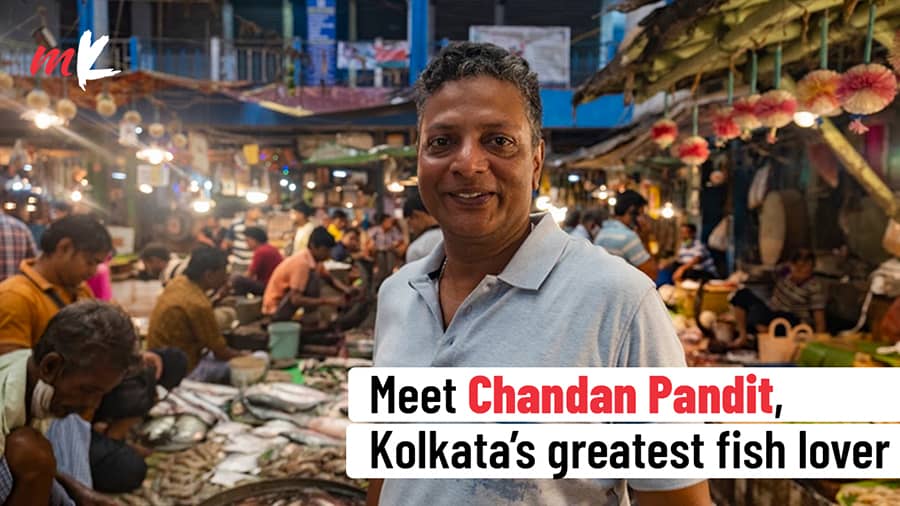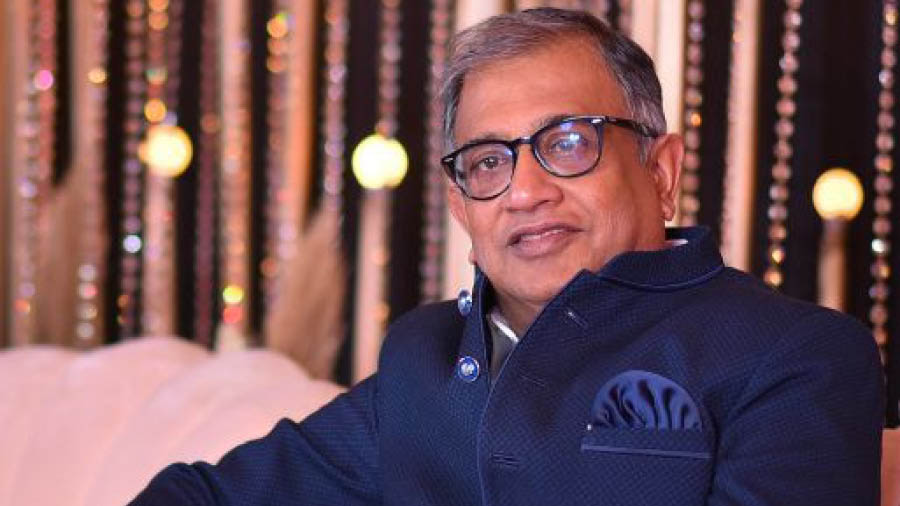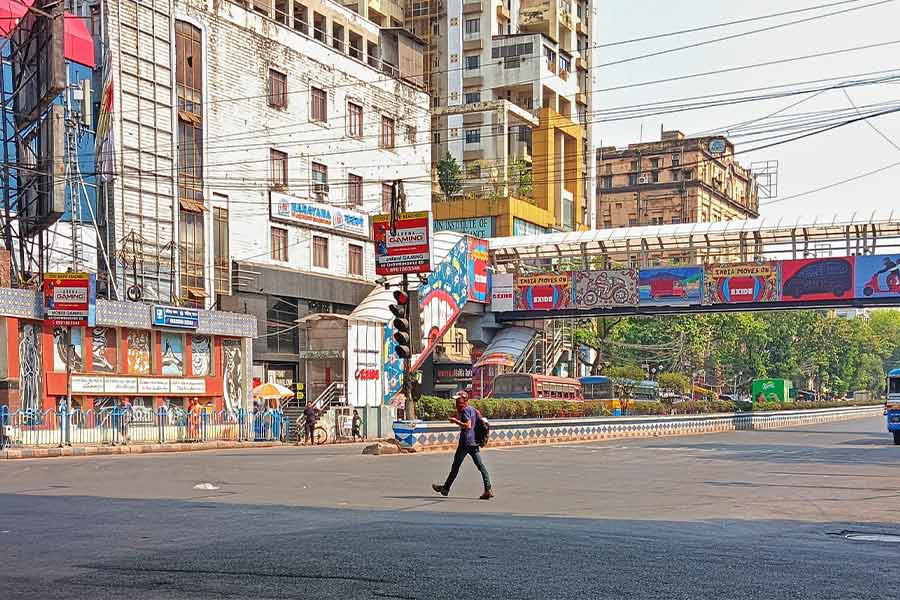In an age where movement by air is becoming the norm for more and more people, movement by water remains indispensable when it comes to cargo. Even though water transport does not generally create ripples in the public imagination, its role in the Indian economy is still pivotal, as India aims to overtake China to become the largest shipping country in Asia. Few people in Kolkata know this as well as Amlan Basu, 50, founder and managing director of AVS Group India, headquartered in Kalighat. Combining a grand vision with the nuts and bolts of everyday functioning, Basu has been gradually transforming India’s shipping industry from Kolkata, one historic project at a time.
In 2015-16, Basu was one of the faces of and minds behind the Standard Operating Procedure (SOP) signed between the governments of India and Bangladesh to operationalise an agreement on coastal shipping. The SOP provides for greater promotion of coastal shipping between the two countries by reducing the transportation cost of export-import (EXIM) cargo. Prior to this agreement, Bangladesh’s connectivity through sea was mostly with Singapore and Colombo. Following the SOP, however, India also began significant cargo movements to and from Bangladesh, with Basu and his AVS Group being instrumental. “Everyone thought it was impossible to move vessels from Kolkata to Dhaka, but we made it a reality,” smiles Basu, who worked extensively with both the government of West Bengal as well as the government of India as part of the project.
‘I knew that to succeed, I needed to bring depth and width to my perspective’
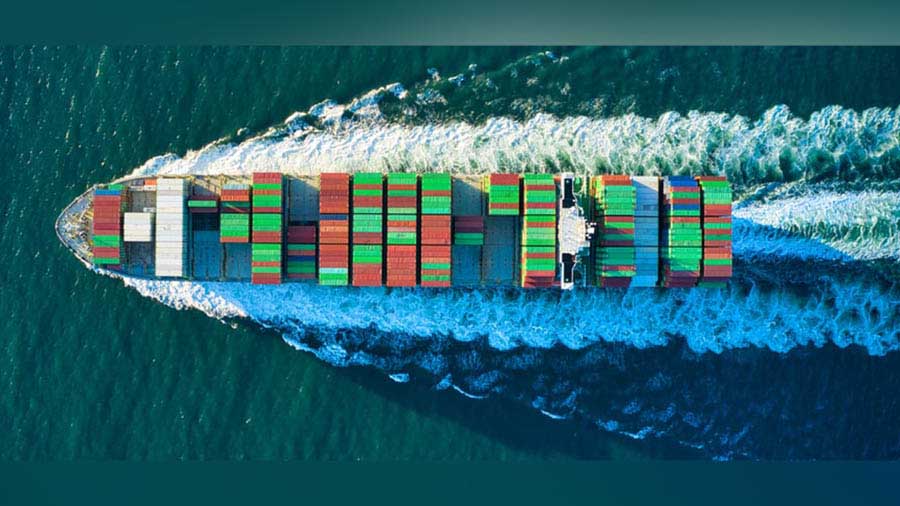
Setting up a shipping business in Kolkata also meant that AVS Group had to build a lot of the local infrastructure from scratch
Courtesy Amlan Basu/AVS Group IndiaBorn and brought up in Kolkata’s Baranagar, Basu gravitated to the shipping industry soon after entering adulthood. His first stint, in the mid 1990s, was with Capstan Shipping Estates, one of the pioneers of containerisation in shipping in eastern India. Thereafter, Basu joined the Singapore-headquartered Pacific International Lines (PIL), where he spent a decade, refining his understanding of micro and macro shipping. “No task was too small or too big for me. I knew that to succeed, I needed to bring depth and width to my perspective,” says Basu, who received an opportunity to move to London to handle PIL’s operations in the UK, but turned it down.
“A part of me wanted to be in Kolkata, to build something here, even though I had a conflict between professional progress and personal belonging,” reflects Basu, who founded his own company, AVS Group India, in 2015. Having started out of an office on Kalighat’s Gurupada Halder Road (where Basu is still based), AVS has diversified over the past eight years, with branches in Bangladesh, Dubai and China, and talks of a partnership in Jordan already in motion.
“I had a lot of doubts about setting up a business in Kolkata,” says Basu, for whom it was not just about growing his company in the city but also about revitalising the shipping infrastructure in Kolkata where years had gone by in a paralysing combination of nostalgia and complacency. With active support from his wife, Nivedita (who is an executive director at AVS besides being an advocate at Calcutta High Court), Basu soldiered on, trying to build a new ecosystem at the same time as dismantling dysfunctional parts of the old one. After the Bangladesh project, AVS — the name has nothing to do with vessels or shipping but is instead an acronym for Avishikta (Basu’s daughter) — found its footing. Navigating bureaucracy, logistics and the natural challenges that come with shipping, Basu and his team were able to earn the recognition of several key stakeholders, including Nitin Gadkari, currently the minister for Road Transport and Highways of India.
What the Kolkata Port needs to do to revive itself
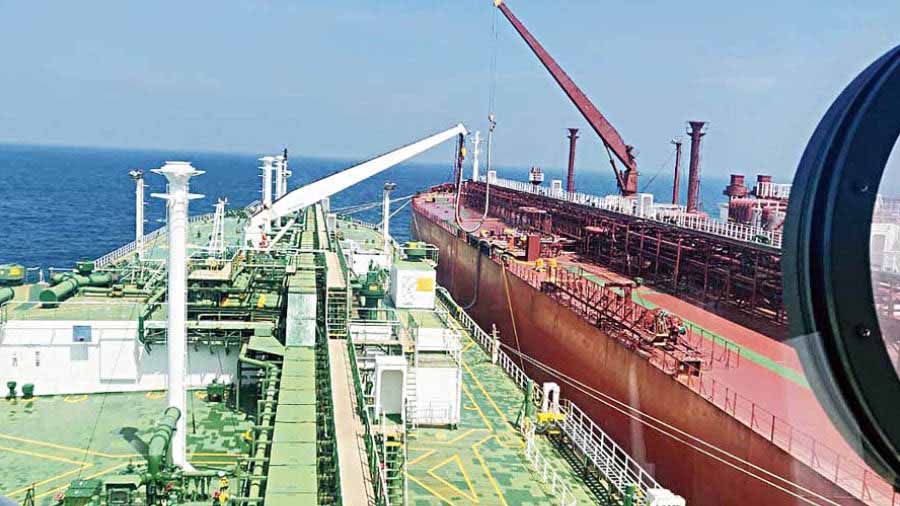
Kolkata Port is India’s only riverine port and is connected to 11 states and five countries
TT ArchivesFrom reducing the dwelling time of vehicles at the Petrapole border with Bangladesh from 45 days to 24 hours to moving record volumes of cargo to Bangladesh, Nepal and Bhutan to pulling off West Bengal’s biggest export project, involving a movement of 300,000 cubic metres of cargo, Basu and AVS have become synonymous with seamless execution of the most challenging endeavours in shipping. What are the most important lessons Basu has learnt through these successes?
“First, you need the right balance of logistics and technology to handle big projects, something that’s happening more and more with policies such as the PM Gati Shakti Scheme. Second, you need constant coordination among different departments, which means that clarity in communication is vital. Third, you need sufficient labour so that you’re not having to compromise with your objectives at any stage,” explains Basu, who admits that in spite of the best efforts of the central and state governments, having a “double engine” administration in the future could possibly smoothen out a lot of administrative hiccups in shipping.
About the Kolkata port, the only riverine port in India, Basu is both practical and optimistic. He does not shy away from the fact that the port needs “considerable development to keep up with modern demands, that better use of resources, especially artificial intelligence (wherever possible), can help turn the fortunes of the port around”. At the same time, Basu is bullish about the potential Kolkata port still holds, with its direct connectivity with 11 states across India and five countries in Southeast Asia.
In the context of inefficiency related to the Kolkata port, Basu makes no bones about dealing with the elephant in the room, the presence of unorganised, even criminal, cartels in the chain of operations. He acknowledges that “speed money” is built into the costing of business tabulations, for the compulsions of entrenched corruption cannot change overnight. What can root out nefarious elements, he feels, is increased digitisation and faceless examination of cargo that has a better shot at being foolproof than the human-driven mechanisms in place at present.
‘When it comes to winning at life, practical experience goes much further than theoretical knowledge’
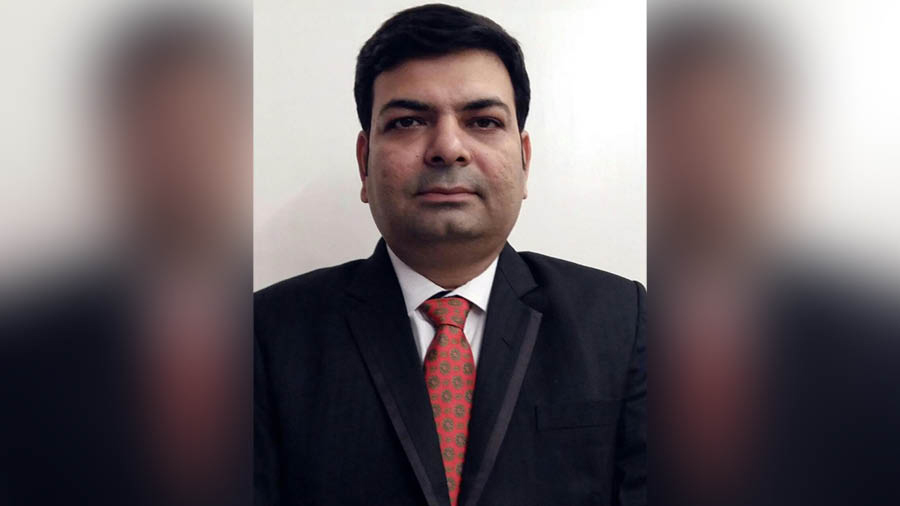
Basu feels that more and more youngsters need to be incentivised to enter the shipping industry
Courtesy Amlan Basu/AVS Group IndiaA lover of music and an ardent follower of “Bengal’s holy trinity of Rabindranath Tagore, Swami Vivekananda and Netaji Subhas Chandra Bose”, Basu has been a member of several organisations related to shipping, including serving as national committee member of the Federation of Indian Chambers & Commerce Industry (FICCI) as well as of the Associated Chambers of Commerce and Industry of India (ASSOCHAM) besides being a former convener of the customs sub committee at the Association of Shipping Interest in Kolkata (ASIC). He is keen on expanding AVS’s blueprint across the country as well as the continent, constantly learning how ports are operating in other parts of India to advance the prospects of Kolkata alongside creating greater conversation around shipping as a lucrative industry for today’s youth. “If we don’t attract the best minds, then we can’t produce the best results. At AVS, we’re also offering training to those interested in learning more about shipping and choosing it as a career,” says Basu.
What would be Basu’s advice to youngsters who are on the cusp of becoming professionals, be it in shipping or other industries? After a few seconds of introspection, Basu answers in his characteristic style of polite firmness: “Focus on yourself, do things for yourself. Remember your dream is yours alone, something that only you can realise. And while you’re at it, go out of your comfort zone and try different things. When it comes to winning at life, I’ve learnt that practical experience goes much further than theoretical knowledge.”


